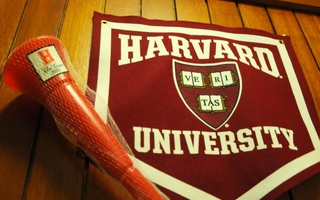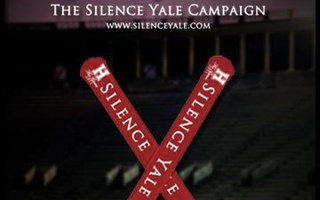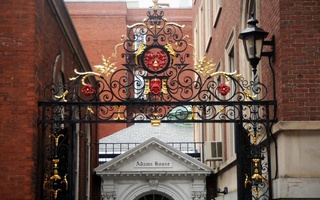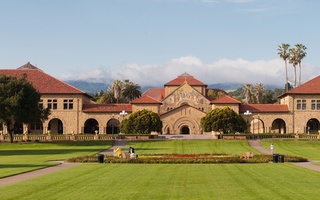There was an odd mix of sounds currently invading my common room two nights ago. Amidst the usual Saturday night clamor of drunken singing and shouting, there was a new addition to the cacophony. The victorious and glorious Harvard-Yale night brought with its jubilation the vuvuzela to Cantabrigian streets.
The Athletics Department banned the use of not only vuvuzelas, but also artificial noisemakers as a whole at the Game. Beside the fact that banning all artificial noisemakers seems a little excessive—vuvuzelas do indeed result in auditory harm, but there are surely noisemakers that are not of the same danger level—as predicted, both Harvardians and Yalies alike resorted to expressing school spirit via vuvuzelas in other, less appropriate, places.
For example, one of the egregious alternative uses for the vuvuzelas was to augment the conviviality of the merry wanderers of the night. Personally, this was more disruptive than what I imagine would have been the case were the thousands in attendance at the Game to have wielded artificial noisemakers. (I blame the College for this cacophanous interruption of my Saturday night, as I was only forced into working on my assignments due on Monday because, unlike those lazy Yalies, we have class this week.)
The bigger issue, however, is what occurred during the game. Sadly, unlike Las Vegas, what happens at the game does not always stay at the game. My voice, like Mr. Darcy’s good opinion, once lost is lost forever—or at least, for many more hours than I can exist in a state of wakefulness without speaking effectively. Although this may reveal a personality flaw—my inability to remain silent—the state of my pharyngitis is rather upsetting. Why, you ask, is my throat in such a disparaging state of soreness? The culprits are my school spirit and this wretched vuvuzela ban.
Harvard students are oft accused of lacking school spirit—many a Yalie has mentioned that though Yale may have lost the Game (for the fourth year in a row, might I add), Yalies have greater spirit. Although this is debatable, it nonetheless raises the issue of our school spirit and how we express it. Given any football game, fans are bound to cheer on their team. Obviously, this involves much screaming, yelling, and maybe even shrieking, along with the usual array of clapping and stomping. We might also refer to these actions as noise-making. Harvardians at the Harvard-Yale game are no different! Thus, I found myself at the stadium screaming my lungs out, desperate to do what I could to cheer on the Crimson and fulfill my arduous—and maybe unexplainable—need to convey my school spirit, only to ultimately relinquish my vocal abilities at the end of the fourth quarter after spending most of the third noting the tell-tale scratchiness that had begun to creep in.
If only I had had the option of bringing along a noisemaker, then perhaps I would not now be imbibing copious amounts of tea to soothe my sore throat or attempting to speak despite a very raspy voice. Although I could try to appreciate the symbolism of my pharyngitis—it is, after all, a constant reminder of our victory over Yale—it is mostly a debilitating and painful state, and one, I believe, that would have been avoidable had I had the choice of bringing an artificial noisemaker to The Game. Instead, I had to resort to a natural noisemaker, thanks to the Athletics Department’s ban.
Permit me, then, to say to the Athletics Department: I bleed crimson in every way possible, but it would have been nice to do so while both retaining my voice and trying not to cage my school spirit.
Ayse Baybars ’12, an inactive Crimson editorial writer, is a Chemistry concentrator in Lowell House.
Read more in Opinion
Not A Friendly Little VillageRecommended Articles
-
If What We Say Is What We Mean..... Then Who Means What the Computer Says?T HE ODDS for anyone on earth being struck by a meteorite in this century are three in a hundred.
-
 Vuvuzelas Banned at Harvard-Yale
Vuvuzelas Banned at Harvard-Yale -
 Thundersticks To Cause Mayhem At Yale
Thundersticks To Cause Mayhem At Yale -
 Adams House
Adams House -
Artificial Intelligence Makes StridesHarvard scientists have been at the center of recent advances in “deep learning” technologies.
-
 Harvard: No Longer the Stuff of Dreams?
Harvard: No Longer the Stuff of Dreams?













